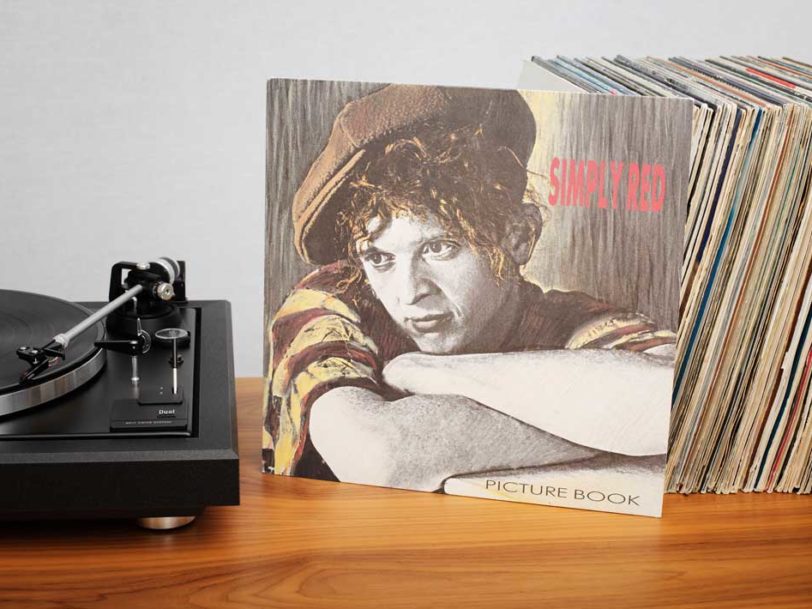Luther Vandross. Alexander O’Neal. Mick Hucknall. Who knew that one of the best soul singers of the mid-80s would be from Manchester, in the North of England? One listen to Picture Book, however, the 1985 debut album by Simply Red, and you’ll hear a man turning a new page in his life – and establishing himself as an era-defining vocalist in the process.
A story worth recounting
If Picture Book offered a sort of story-so-far of Mick Hucknall’s life, it’s a story worth recounting. With a career that’s now into its fourth decade, Simply Red have been no strangers to success. Sixty million album sales – five of them UK No.1s – and a billion (and counting) YouTube views attest to a hit-rate that would make their contemporaries green with envy, but when Simply Red formed in 1985, the same year that Picture Book hit the shelves, Hucknall was pulling himself out of a life marked by deprivation. Not all great artists have to suffer, but Hucknall did – and he poured his experiences into one of the best debut albums of the 80s.
Abandoned by his mother when he was just three, Hucknall was a single child raised in a single-parent family, his father working as a barber to make ends meet. As a 16-year-old art school student, he was one of hundreds, if not thousands, who claimed to have been at Sex Pistols’ epochal 1976 Manchester Lesser Free Trade Hall concert – but one of around only 40 who actually were. The show may have led to the birth of The Smiths, Joy Division and the whole Factory Records stable, but where those artists developed a distinctly British working-class mindset, Hucknall looked across the Atlantic for inspiration from the soul and funk music of the 60s and 70s.
Traces of the Manchester scene’s post-punk movement bled into Hucknall’s first band, Frantic Elevators, but that voice wasn’t fooling anyone. Despite the melancholy bassline and stark guitar that frames their 1982 recording of Holding Back The Years, Hucknall’s vocals elevate the song from Manchester’s monochrome palette into something that, in the hands of his next group, would simply shine.




